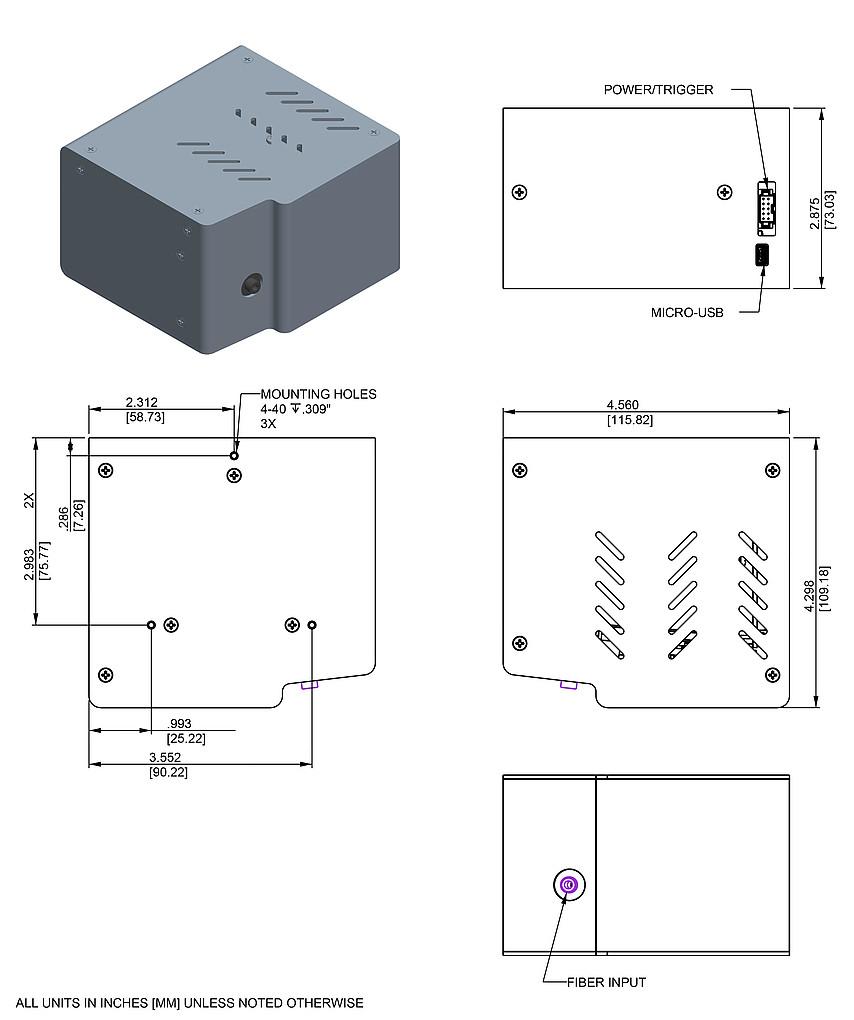Manufacturer of Optical Spectrometers, Camera Systems for OEM Industrial Applications
Highest SNR PDA Miniature Spectrometer
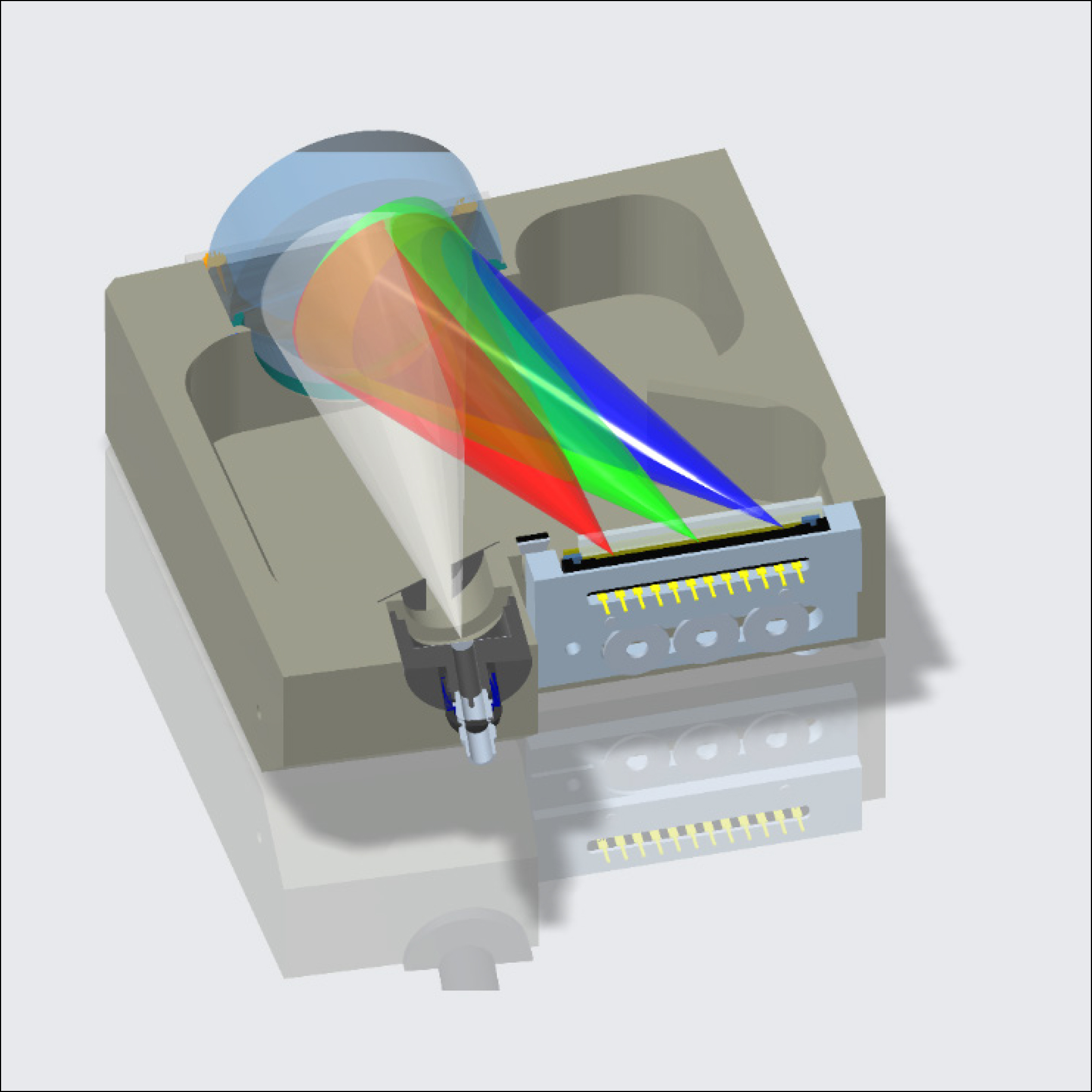
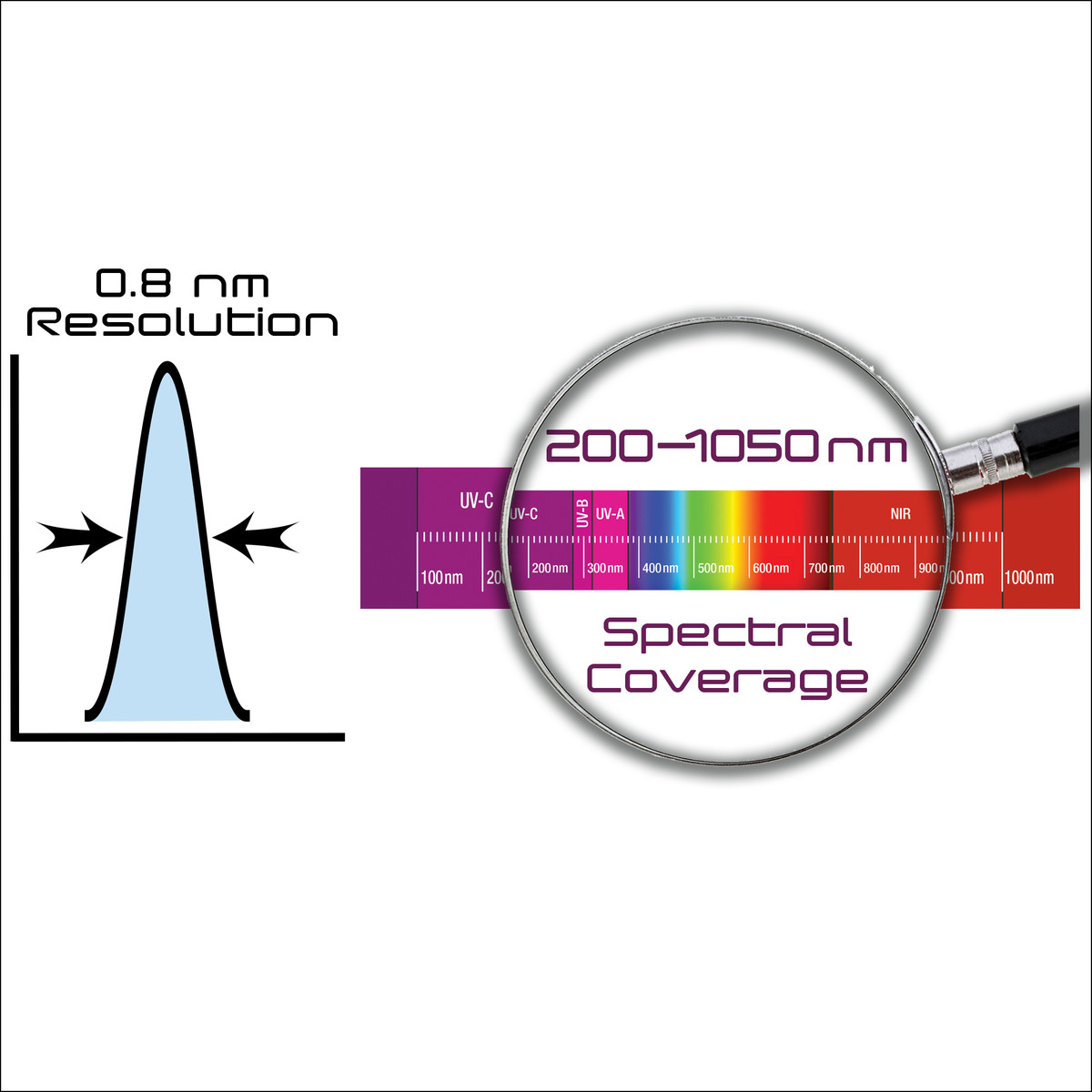
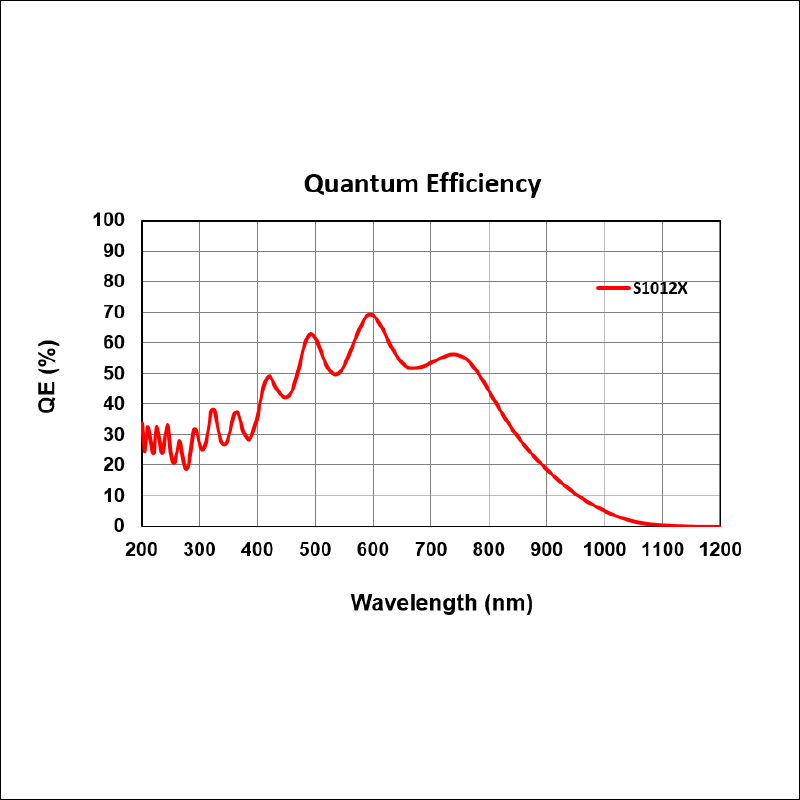
VS70-PDA OEM Photodiode Array Spectrometer is a high performance compact fiber coupled spectrometer covering wide spectral range of 200 to 1000 nm. This VS70 system for industrial applications uses a modified VS70 optical engine with Horiba’s type-IV Aberration-Corrected Flat-Field Holographic Ion-Etched concave grating optimized for UV-VIS and a linear photodiode array.
This system is fitted with a custom multi-area order-sorting filter to eliminate higher orders and features a single-optics design for superior imaging, high sensitivity, high resolution and low stray light performance for bright-light applications such as emission, absorbance and reflectance.
For OEM Industrial Applications
Ideal for industrial bright-light applications such as emission, absorbance, and reflectance
Examples:
ㆍPharmaceuticals & life science
ㆍSemiconductor
ㆍLiquid chromatography
ㆍEnvironment, agriculture and energy
ㆍ High spectral acquisition speed (high read out speed 3.5 ms)
ㆍ Wide spectral coverage from UV to NIR
ㆍ Colossal PDA full well up to 1 Ge–, more than 100 times deeper than any CCD
ㆍ High signal-to-noise ratio combined with ultra low stray light
ㆍ High UV sensitivity with smoothly varying spectral response
ㆍ High throughput
ㆍ Compact size robustness and stability
OEM Spectrometer Selection Guide
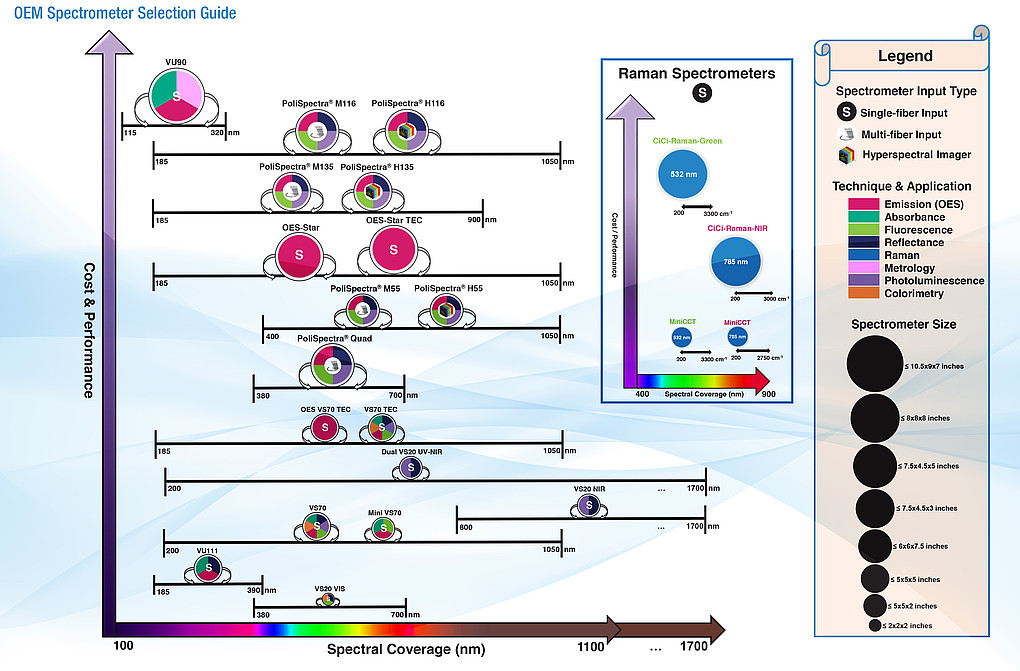
| General Spectrometer Specifications* | |
|---|---|
|
Spectral Coverage |
Standard: UV-VIS (200–860 nm) with 477 l/mm grating, VIS (380–750 nm) with 582 l/mm grating, UV-NIR (200–1050 nm) with double-blazed 365 l/mm grating On request other spectral ranges available / different mechanical integration might needed |
|
Spectrometer Input |
Fiber coupled: FC or SMA; Free space: 12-25-37-50-62-75-100-125-150-200 μm slits, other options available upon request |
|
Spectral Resolution |
2 nm for 365 l/mm grating, 1 nm for 477 l/mm grating, 0.8 nm for 582 l/mm grating (25 μm slit for all) |
| Average Spectral Dispersion |
30.9 nm/mm for 365 l/mm grating, 23.7 nm/mm for 477 l/mm grating, 16.3 nm/mm for 582 l/mm grating |
|
Focal Length |
70 mm |
| Options | Selection of high grade sensors: CMOS, B.I. CCD, PDA Input port: SMA, FC, free space, custom input |
|
F/# |
F/2.3 |
| Stray-light Rejection Typical (Maximum) |
0.01% (0.02%) for UV-VIS configuration with 300 μm tall CCD, measured at 700 nm (measured with broad bandpass 510 nm filter, 75 μm slit-width) > 2.4 AU linear range (5% variation) with caffeine 273 nm absorption peak in 10 mm cuvette and D2 lamp. |
|
Wavelength Accuracy |
≤ 0.2 nm (Average Absolute Wavelength Error) |
|
Software** |
LabVIEW™ acquisition software for initial evaluation (DLLs provided for software integration) |
| Detector Options and Specifications* | |
|---|---|
| High sensitivity, high dynamic range linear photdiode array | |
| Detector Model | Hamamatsu S10123-1024N with higher UV sensitivity and smoothly varying spectral response characteristics in UV region and wide photosensitive area |
| Sensor Format | 1024 x 1 pixels (512 pixels available on request) |
| PDA Pixel Size | 25 x 500 μm (taller 2500 μm version available on request) |
| PDA Active Area | 25.6 x 0.5 mm |
| PDA QE | See the plot below |
| Sensor Temperature | Uncooled |
| Maximum Spectral Rate | |
| Full Well Capacity | 100 Me- (1 Ge- optional) |
| Readout Noise | 3,900 e- (typical); 5,250 (maximum) |
| Digitization | 16-bit |
| Dynamic Range (FW/RN) | |
| SNR | 10,000:1 (typical) |
| Non-linearity (measured on each system) |
< 0.4% (corrected) |
| Dark Current | 200,000 e-/pix/s (typical); 250,000 e-/pix/s (maximum) |
| Communication | USB 2 |
| Environmental Conditions | Operating temperature 15° C to 40° C ambient Relative humidity <70% (non-condensing) Storage temperature -25° C to 45° C |
| Power Requirements | Powered by Samtec connector, 5 VDC |
* HORIBA Instruments has a policy of continuous product development, and reserves the right to amend part numbers, descriptions and specifications without prior notice.
**No LabVIEW™ license is needed to run our acquisition software.
Quantum Efficiency
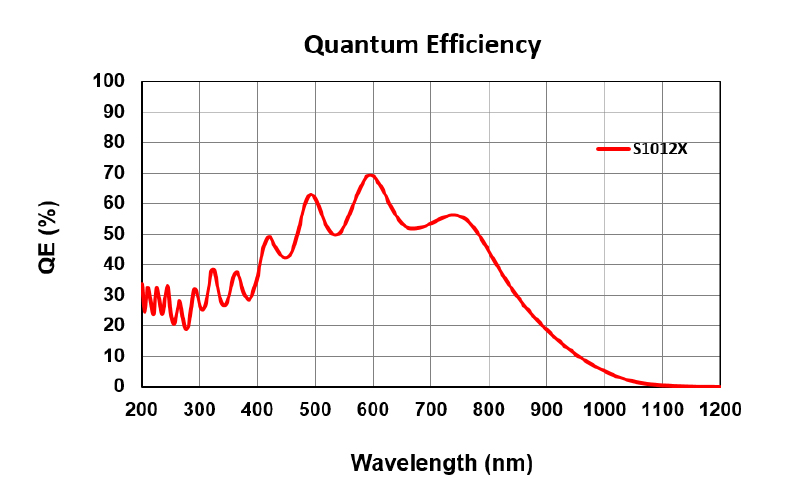
Mechanical Drawings
